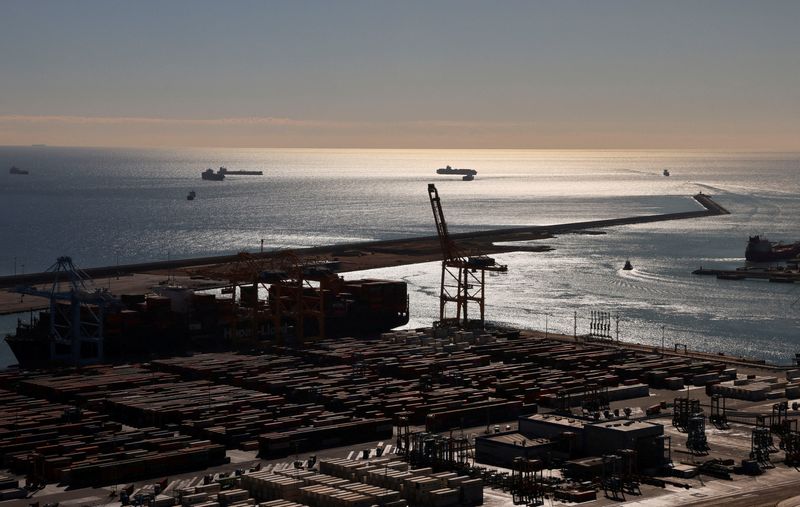MADRID (Reuters) - The volume of goods moving through Spain's top ports rose by as much as 25% in January as attacks on shipping in the Red Sea caused companies to divert Europe-bound vessels around southern Africa instead.
Spain's northern ports have also seen volumes in transit jump by up to triple as traders opt to avoid moving goods by truck through Europe because of widespread blockades by farmers, Spanish retail and food industry association Aecoc says.
Ports such as Las Palmas in the Canary Islands and Barcelona saw a 25.4% and 7.6% increase in the volume of merchandise respectively, during the first month of 2023. Overall traffic of goods to Spanish ports - including merchandise, bulk liquids and dry bulk - increased by 3.4% in January compared to a 3.3% decline in traffic last year, according to official figures.
Spanish ports are important entry points to Europe for shipping companies that opt to sail around southern Africa rather than through the Red Sea to avoid attacks by Houthi rebels off Yemen.
The increase in traffic may be linked to the effects of the Red Sea crisis, the state-run ports agency told Reuters, but it would have to wait some months for a more accurate assessment.
Volumes of merchandise in transit increased 2.8% in Spanish ports, but the rise is even more evident in northern Spanish ports such as Santander (BME:SAN) and Bilbao, which in the first 30 days of the year handled between two and three times the volume of goods in transit compared to January 2022.

The rise in volumes in Santander is also due to an expansion of the port's container terminal, its press office said.
In recent weeks, some operators at the port of Santander have received enquiries and requests to send goods to Britain, the port also said.